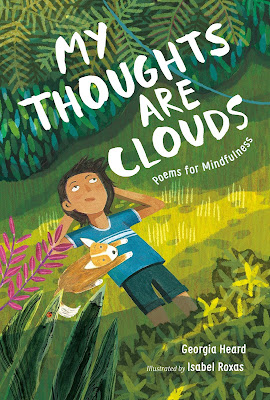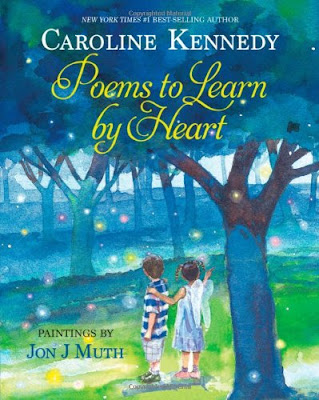The Poet X
Bibliography:
Acevedo, Elizabeth. The Poet X. New York: HarperCollins, 2018. ISBN: 9780062662804Plot Summary:
 Xiomara Bastista, a Harlem sophomore growing up in the shadow of her strict Dominican mother and her virtually absent Dominican father, struggles to find her voice and her identity as her body and mind grapple with young adulthood. Her name means “warrior,” and unlike her saintlike twin brother, Xiomara finds herself in conflict with the expectations of her family, the Catholic church, and the leering gaze of a society which views her as a sexual object. She finds escape and expression, however private, in her notebook, and gradually begins to risk sharing her internal world of words with her lab partner Aman, a young man who shares his earbuds and a caring, unaggressive interest in Xiomara. When she joins a school slam poetry club at the recommendation of her English teacher, a fire of poetic liberation ignites inside her, desperate to give voice to her deepest pain and desire.
Xiomara Bastista, a Harlem sophomore growing up in the shadow of her strict Dominican mother and her virtually absent Dominican father, struggles to find her voice and her identity as her body and mind grapple with young adulthood. Her name means “warrior,” and unlike her saintlike twin brother, Xiomara finds herself in conflict with the expectations of her family, the Catholic church, and the leering gaze of a society which views her as a sexual object. She finds escape and expression, however private, in her notebook, and gradually begins to risk sharing her internal world of words with her lab partner Aman, a young man who shares his earbuds and a caring, unaggressive interest in Xiomara. When she joins a school slam poetry club at the recommendation of her English teacher, a fire of poetic liberation ignites inside her, desperate to give voice to her deepest pain and desire.Critical Analysis:
Elizabeth Acevedo’s verse novel ingeniously employs the conventions of poetry to take the reader straight into the conflicted heart of its main character. In unrhymed free verse, Acevedo weaves together English and Spanish, repeating lines like “Mira, muchacha” (Look, girl) and “Pero, tú no eres fácil” (You sure ain’t an easy one) to give voice to the biting disapproval of Xiomara’s mother. From the first page, Harlem is personified, “opening its eyes to September,” and the entire novel thrums with the rhythmic sound of Xiomara’s (and Acevedo’s) rich poetic language.Xiomara, caught between worlds, alternates between the spoken and unspoken truths of her life. By juxtaposing the painfully honest, poetic rough drafts of her writing assignments (a poem about the uncertainty and shame of starting her first period, for example) and the formal, academic final drafts (a teacher-friendly yet poetic essay about receiving a journal from her brother), Acevedo highlights the tension between Xiomara’s internal and external voice. Xiomara defines the difference between herself and Twin (the name she calls her brother) in metaphor: “He is an award-winning bound book, where I am loose and blank pages.” Even so, Xiomara’s pages do not stay blank for long; they fill with similes (“I want to break myself open like an egg smacked hard against an edge...”) and paradoxical imagery (“The more I bruise the page, the quicker something inside me heals...”), growing in boldness and depth as she discovers her courage.
The poems that comprise the novel take on various forms to match the emotional energy of each moment: haikus, theatrical scripts, unrhymed couplets, and in the most painful and traumatic moments, words trail down the page, one at a time, causing the reader to slow down and feel every word. Paired poems such as “People Say” and “On Papi” utilize symmetrical alignment on facing pages to visually emphasize the contrast between people’s perception of her father and the deeply felt truth of his emotional absence. This attention to the flow between poems gives the novel a strong continuity and urges the reader to experience the poetry as deeply as Xiomara does as she stands in front of her bathroom mirror, internalizing and memorizing her poems in “Holding a Poem in the Body.”
The novel as a whole is divided into three parts entitled with biblical allusions: Part I: In The Beginning Was the Word; Part II: And the Word Was Made Flesh; Part III: The Voice of One Crying in the Wilderness. Though Xiomara grows further apart from the Catholic faith, these titles underscore her journey of incarnation as she becomes more fully herself through the act of writing and speaking her truth aloud.
The novel’s gorgeous cover illustration also deserves mention. Gabriel Moreno’s artwork depicts Xiomara in a riot of splattered black paint that forms her voluminous hair against splashes of warm color. Poetic phrases drift across her skin and float through her hair as if issuing from her mind, a perfect representation of The Poet X and its vibrant, unstoppable soul. This is a “must read” for young adults and adults of any age.
Awards and Review Excerpts:
- Winner of the 2018 National Book Award for Young People’s Literature
- Winner of the 2018 Printz Award for Excellence in Young Adult Fiction
- Winner of the 2019 CILIP Carnegie Medal
- Winner of the 2019 Pure Belpré Author Award
- Winner of the 2019 Walter Award for diverse books by diverse authors
- Odyssey Award 2019 Honor Recording for best audiobooks for children and young adults
“In nearly every poem, there is at least one universal truth about adolescence, family, gender, race, religion, or sexuality that will have readers either nodding in grateful acknowledgment or blinking away tears.” Horn Book
Connections:
Collect other award-winning verse novels for young adults:Alexander, Kwame. The Crossover. Boston: HMH Books, 2014. ISBN: 0544935209
Reynolds, Jason. Long Way Down. New York: Atheneum, 2017. ISBN: 1481438263
Woodson, Jacqueline. Brown Girl Dreaming. New York: Penguin, 2014. ISBN: 9780147515827
Explore other (non-verse) novels by Elizabeth Acevedo:
With the Fire on High. New York: Quill Tree Books, 2019. ISBN: 006266283X
Clap When You Land. New York: Quill Tree Books, 2020. ISBN: 0062882767
Dive into the word of slam poetry:
Smith, Marc. Take the Mic (A Poetry Speaks Experience). Naperville: Sourcebooks MediaFusion, 2009. ISBN: 1402218990



Comments
Post a Comment